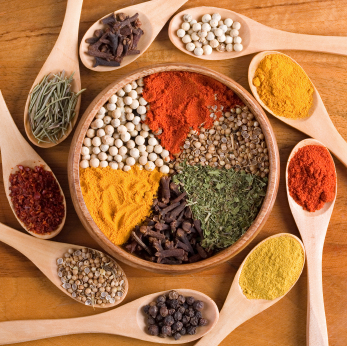
Effects of Tastes on our body
Our tongue is primarily responsible to identify the taste of food. Our passion and enjoyment of being foody lies behind the taste factor only. Ayurveda has described 6 types of tastes. Each taste carries its own quality and distinct effect on our body. Let’s see it one by one
Sweet Taste:
- In sanskrita, Sweet taste is called as “Madhura”
- Ayurveda says that sweet taste is almost liked by everyone and is complementary to our body
- Sweet taste nourishes the body and gives energy
- It gains weight and fat tissues
- It creates good mood. It is healthy for mind
- Sweet taste makes the voice better. It is good for throat related diseases
- If taken excessively, Sweet taste may cause obesity. It also causes drowsiness & lack of enthusiasm. It also causes vomiting sensation, fatigue, fever, as well as cold and cough.
Sour Taste:
- In sanskrita, Sour taste is called as “Amla”
- According to Ayurveda, Sour taste is appetizer
- Sour taste is good for digestive system. It helps in digestive activities
- Sour taste is good for heart diseases. It makes heart healthy
- Sour taste is rejuvenator. Is refreshes the body and senses
- If taken excessively, sour taste stiffs the body and joints. It causes swelling on eyes. It also causes various types of skin diseases. It may cause teeth and gum related problems.
Salty Taste:
- In sanskrita, Salty taste is called as “Lavana”
- According to Ayurveda, salty taste is a very good appetizer & digestive
- Salty taste removes pain and stiffness of joints
- It increases salivation
- Salty taste is overpowering in nature. It hides all the other tastes if put excessively in the recipe
- If taken excessively, Salty taste causes sexual difficulties. It increases blood pressure. It causes skin diseases and increases pigmentation. It also causes dryness in body.
Pungent Taste:
- In sanskrita, bitter taste is called as “Katu”
- According to Ayurveda, Pungent taste is good for digestive activities
- It relieves Kapha and obesity
- Pungent taste cleanses body channels
- If taken excessively, pungent taste may cause diarrhea, dysentery & vomiting. It may lead to skin diseases. It may increase pitta and cause digestive disturbance
Bitter Taste:
- In sanskrita, pungent taste is called as “Tikta”
- Bitter taste destroys worms and infection
- Bitter taste increases immunity
- Bitter taste is good in obesity
- If taken excessively, bitter taste may produce dryness and lead to lack of enthusiasm and vitality
Astringent Taste:
- In sanskrita, astringent is called as “Kashaya”
- Astringent taste is a blocker. It may cause constipation. It constricts & blocks the body channels
- It joins the bones, so it is effective in post fracture rehabilitation
- If taken excessively, Astringent taste may cause gastric disturbance. It obstructs the flow of stool, urine and semen. It may lead to lack of vitality and energy
